The demand for green jobs is booming. While organizations are consciously taking new pledges on sustainable business practices, it is becoming increasingly evident that green jobs will be available not only in all key sectors like manufacturing, tourism, energy, fashion, construction, and beyond but also across a variety of processes and operations—from procurement, materials and accounting to supply chain management, AI, digital tools and everything in between.
Linkedin’s Global Green Skills Report states that at the current pace, demand for workers with green skills will surpass supply within the next five years.
To prepare for this sustainability revolution, organizations must rethink skilling programs and get workers “future-ready.”
As the goal of net zero becomes increasingly urgent, the immediate crisis at hand is the need for an army of associates, in all areas of business—associates or sustainability professionals with green abilities who constantly consider sustainability in every decision.
Green talent in the workforce worldwide is rising. The share of green talent increased from 9.6% in 2015, to 13.3% in mid-2021 (a growth rate of 38.5%).* While the demand for green talent is increasing, the talent pool grew at only 6 percent.
- Linkedin Global Green Skills Report 2022
The sustainability skills scarcity can be effectively addressed through smart training efforts. Investment in learning programs that are focused on sustainability and skills, combined with the functional abilities of each role will ensure daily work processes are effortlessly steeped in sustainability. Green jobs also require creative problem-solving capabilities and synthesizing, some of which can be learned on the job, while the rest can be bridged through accessible training opportunities curated to meet employers’ needs.
Did you know that 350 million people reached out to the World Economic Forum’s Reskilling Revolution in the last three years? With geo-economic pressures, green transition, and skills churn, it is evident that not only the leaders of organizations but workers are equally invested in the transformation.
Find inspiration from these use cases from organizations that have successfully closed the skills gap through effective learning programs for their workers.
Responsible Forestry and Sustainability
An American multinational consumer goods corporation trained its employees about responsible sourcing of wood pulp and using natural materials like wood, paper, or bamboo to create and package its finished products.
ELB Learning created an immersive learning experience, complete with instructor narrations, interactions, and scenario-based learning to help learners navigate through the training material.
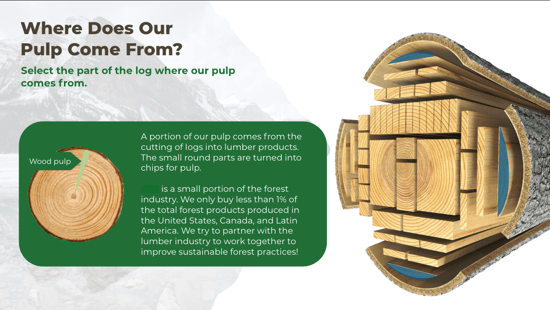
The superior learning content and design ensure learners are actively engaged to understand company policies, best practices, and certification opportunities to be a seasoned sustainability officer.
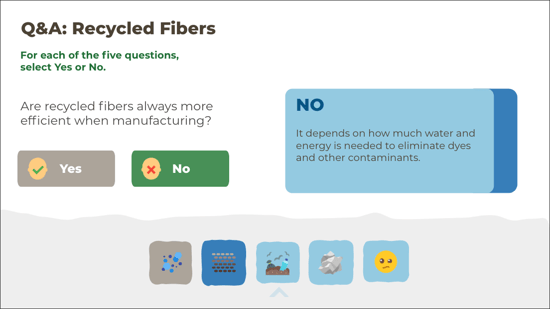
Learners also undertake knowledge checks at the end of each module and have access to training material to assist in on-the-job performance.
Creating a Digital, Electric & Resilient Future
A French multinational company that specializes in energy management wanted to comprehensively introduce and present its sustainable business practices to employees. By including the learning module during employee onboarding, learners are motivated and encouraged to continue sustainable best practices in their role.
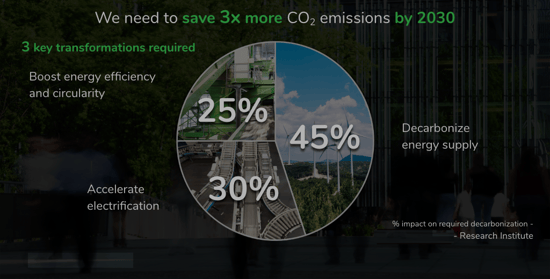
ELB Learning created and deployed a highly interactive and social learning environment that puts the learner's needs front and center.
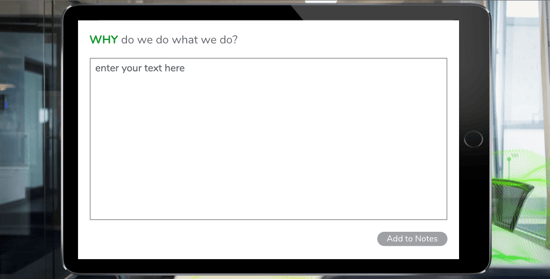
Taking notes during the online module, assessing knowledge, and sharing their learnings on the company’s intranet made for an effective and enjoyable learning experience. Learners are equipped to be knowledgeable about climate change and policies that affect the company, and how their individual role collectively impacts decarbonization.
Sustainability for a Healthier Community
Creating sustainable leaders of tomorrow includes educating children today. Many schools have embraced a curriculum that includes sustainability and green skills. Here is a use case from an institution that implemented a sustainability education program for elementary-middle school students, that allows them to envision the world they’d like to live in.
The Game Agency created a learning course that covers topics such as human health, climate change, global resource constraints, and animal welfare. The intuitive content and design were specifically designed for upper elementary and middle school grades and present learning material to build an understanding that we’re all responsible for our planet.
The key features include an overarching theme, and a series of interactive pages that allow learners to explore concepts related to Earth, biodiversity, and beyond. Students are encouraged to design their ideal place complete with laws and principles that they have been introduced to, and determine interconnectedness for a healthy world.
Do you want to close the sustainability skill gap at your organization?
From deploying deep and specialized sustainability knowledge and skills for your employees to training in specific sustainability subject areas including fluency in digital tools, ELB Learning can help you train and upskill employees. We are ready to support your commitment to creating a workforce built for sustainability. Speak with our custom solutions team today.
